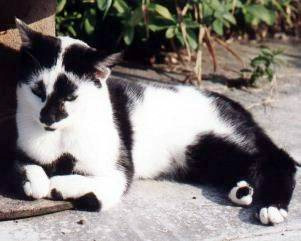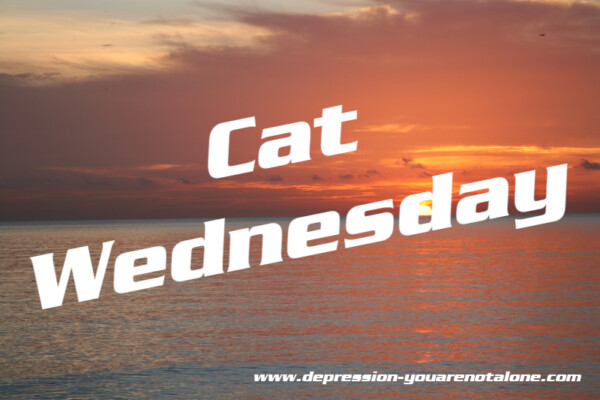Cat Wednesday 2024-02-14
Having cats as pets can be a great source of companionship and comfort. Not only do cats provide unconditional love and affection, but they can also help improve your mental health. Studies have shown that having cats as pets can reduce stress levels, lower blood pressure, and even increase feelings of happiness and well-being. Cats can also help us feel more connected to nature, as they are an important part of the natural world. In addition to providing physical and mental health benefits, cats can also bring joy into our lives with their playful personalities and amusing antics. By providing us with companionship, comfort, entertainment, and relaxation, having cats as pets is an excellent way to enhance our lives and improve our mental health. – Editorial Team
.
Twisty Cat/Squitten
Editorial Team

Messybeast at en.wikipedia, CC BY-SA 3.0, via Wikimedia Commons
The Twisty Cat, also known as the Squitten, is a relatively rare and unique cat breed characterized by its unusual physical feature: twisted or shortened forelimbs, resembling the front legs of a squirrel. This distinctive trait is caused by a genetic mutation that affects the development of the cat’s skeletal structure. Here’s a detailed explanation of various aspects of the Twisty Cat/Squitten breed:
- Physical Characteristics:
- Twisted or Shortened Forelimbs: The most notable feature of Twisty Cats/Squittens is their front legs, which may be twisted or shortened, resembling the paws of a squirrel. This mutation can vary in severity, with some cats having slightly twisted paws while others may have significantly shortened forelimbs.
- Normal Hind Limbs: Despite the unusual front legs, Squittens typically have normal hind limbs.
- Other Physical Traits: Apart from the forelimb abnormality, Squittens generally have typical cat body structures, including a medium-sized body, a rounded head, and a variety of coat colors and patterns.
- Genetics:
- The twisted or shortened forelimbs in Squittens are believed to be caused by a genetic mutation affecting the development of the cat’s skeletal system.
- The exact genetic mechanism underlying this mutation is not fully understood, but it is likely inherited in an autosomal dominant manner, meaning that a cat only needs to inherit one copy of the mutated gene from either parent to exhibit the trait.
- Because of the dominant nature of the mutation, Squitten offspring have a high likelihood of inheriting the trait if one of their parents is a Twisty Cat.
- Health and Well-being:
- Despite their unique appearance, Twisty Cats/Squittens generally enjoy good health and can live long, fulfilling lives.
- The mutation causing the forelimb abnormality doesn’t typically lead to significant health problems or impairments in mobility.
- However, breeders and owners should still provide appropriate veterinary care and monitor for any potential issues, especially related to mobility or joint health.
- Breeding and Ethics:
- Due to the specific genetic mutation associated with Twisty Cats/Squittens, breeding programs for this breed should be conducted responsibly and ethically.
- It’s essential for breeders to prioritize the health and well-being of the cats and avoid practices that could perpetuate genetic disorders or compromise the overall welfare of the animals.
- Responsible breeding practices include genetic testing to ensure the health of breeding cats, screening for potential health issues, providing proper care and socialization for kittens, and working to maintain genetic diversity within the breed population.
- Popularity and Availability:
- Twisty Cats/Squittens are relatively rare compared to more common cat breeds.
- While they may not be as widespread or well-known as some other breeds, there is still a niche market for Twisty Cats/Squittens among cat enthusiasts who appreciate their unique appearance and personality traits.
- Finding reputable breeders specializing in Twisty Cats/Squittens may require some research and patience due to their rarity.
In summary, Twisty Cats/Squittens are a unique and intriguing cat breed characterized by their twisted or shortened forelimbs. While they are relatively rare and may not be as widely recognized as other breeds, they are beloved by many for their distinctive appearance and typically enjoy good health and well-being when bred responsibly.

